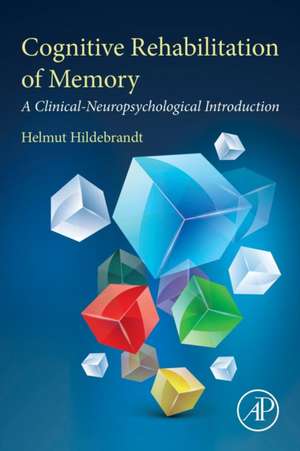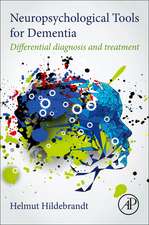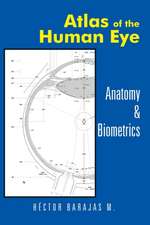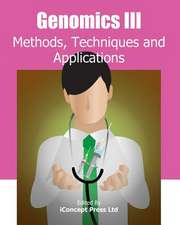Cognitive Rehabilitation of Memory: A Clinical-Neuropsychological Introduction
Autor Helmut Hildebrandten Limba Engleză Paperback – 23 ian 2019
- Outlines guidelines for treating patients with memory disorder
- Reviews rehabilitation programs to improve memory function
- Examines non-cognitive approaches for improving memory impairments
Preț: 792.66 lei
Preț vechi: 1098.93 lei
-28% Nou
Puncte Express: 1189
Preț estimativ în valută:
151.72€ • 164.86$ • 127.53£
151.72€ • 164.86$ • 127.53£
Carte tipărită la comandă
Livrare economică 14-28 aprilie
Preluare comenzi: 021 569.72.76
Specificații
ISBN-13: 9780128169810
ISBN-10: 0128169818
Pagini: 217
Ilustrații: 40 illustrations (20 in full color)
Dimensiuni: 152 x 229 x 18 mm
Greutate: 0.3 kg
Editura: ELSEVIER SCIENCE
ISBN-10: 0128169818
Pagini: 217
Ilustrații: 40 illustrations (20 in full color)
Dimensiuni: 152 x 229 x 18 mm
Greutate: 0.3 kg
Editura: ELSEVIER SCIENCE
Public țintă
Advanced students and researchers in cognitive and behavioral neuroscience, psychology, psychiatry, psychotherapyCuprins
I. Evidence-based medicine in rehabilitation research 1. Introduction2. Strategies of neurorehabilitation: restitution and compensation3. Definition of evidence-based medicine (EBM)4. Reviewing and the development of guidelines5. Guidelines for treating patients6. How to measure treatment effects ("outcome")?7. How to rate neuropsychological assessments as outcome measures8. Level of evidence9. The Randomized Controlled Trial (RCT) as "gold-standard" in rehabilitation research10. Some basic aspects of statistical analysis of treatment studies11. Problems with group studies in neuropsychological rehabilitation research12. Single case experimental designs (SCED) in rehabilitation research13. The quality of a treatment study does not only depend on a sound methodology
II. Rehabilitation of moderately to mildly impaired memory functions1. Some remarks on the frequency (prevalence) and persistence of memory disorders as consequence of organic brain diseases2. Rehabilitation of memory: Improving encoding through mnemonic strategies3. Memory rehabilitation as improving the encoding process through multiple, adaptive mnemonic strategies4. Deep encoding and transfer appropriate processing and memory rehabilitation5. Improving memory performance through working memory training6 Is it possible to improve recollection? The repetition lag procedure7. Memory rehabilitation focusing on retrieval training8. Specific guidelines for rehabilitation of mildly to moderately memory impaired patients
III. Compensation of memory disorders through external memory aids1. Spontaneous use of memory aids2. Group studies on teaching external aids to memory impaired patients3. A classification of memory aids and to what kind of patients they fit
IV. Treatment of severely impaired, amnestic patients1. Some etiological, epidemiological and defining background information2. Treatment options3. Orientation training4. Treating confabulations
V. Non-cognitive treatments of memory impairments1. Transcranial direct current stimulation2. Neurofeedback
II. Rehabilitation of moderately to mildly impaired memory functions1. Some remarks on the frequency (prevalence) and persistence of memory disorders as consequence of organic brain diseases2. Rehabilitation of memory: Improving encoding through mnemonic strategies3. Memory rehabilitation as improving the encoding process through multiple, adaptive mnemonic strategies4. Deep encoding and transfer appropriate processing and memory rehabilitation5. Improving memory performance through working memory training6 Is it possible to improve recollection? The repetition lag procedure7. Memory rehabilitation focusing on retrieval training8. Specific guidelines for rehabilitation of mildly to moderately memory impaired patients
III. Compensation of memory disorders through external memory aids1. Spontaneous use of memory aids2. Group studies on teaching external aids to memory impaired patients3. A classification of memory aids and to what kind of patients they fit
IV. Treatment of severely impaired, amnestic patients1. Some etiological, epidemiological and defining background information2. Treatment options3. Orientation training4. Treating confabulations
V. Non-cognitive treatments of memory impairments1. Transcranial direct current stimulation2. Neurofeedback




















